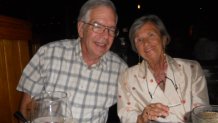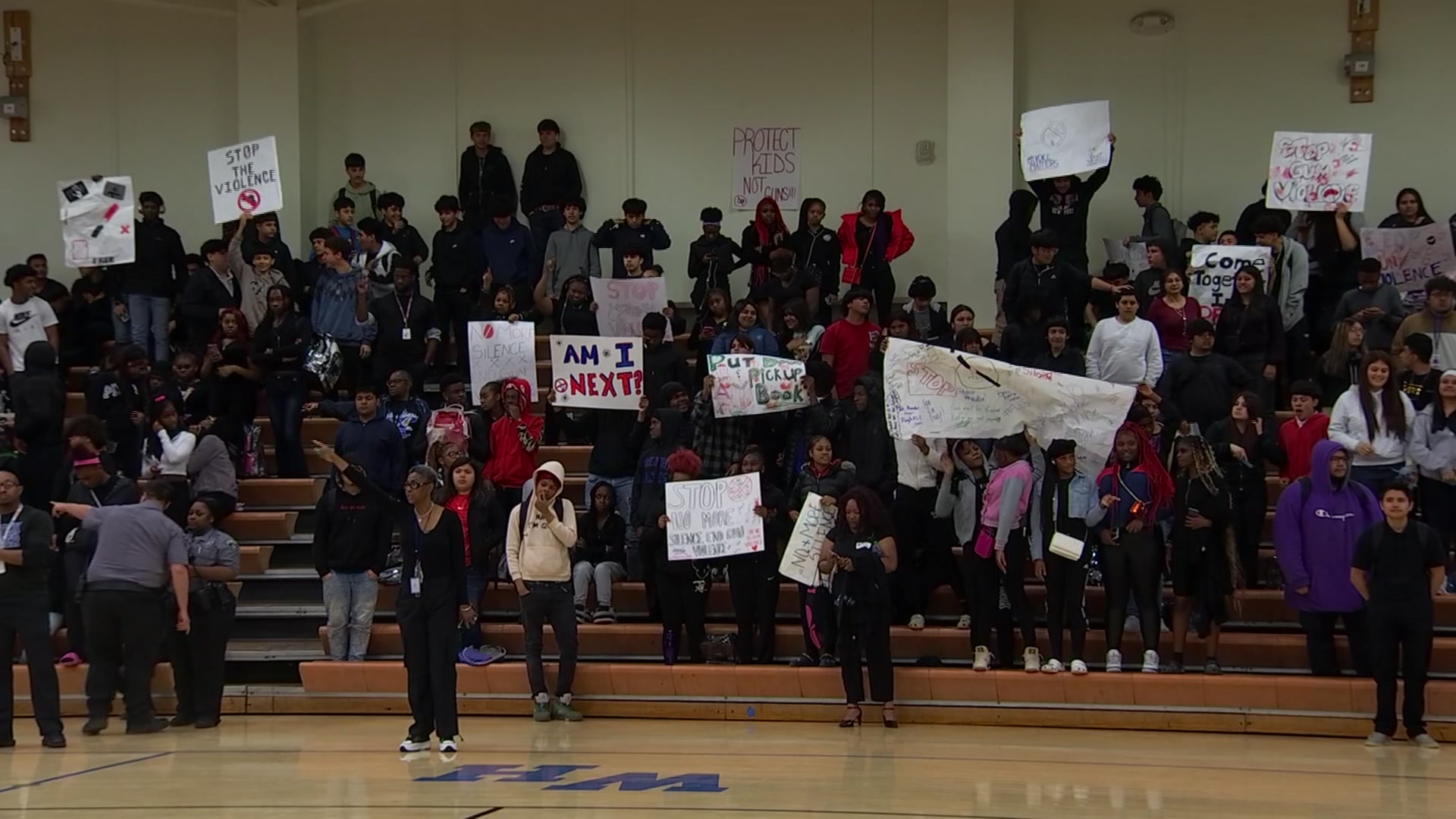Even though the state has partially reopened, long term care facilities remain closed to visitors. Due to the pandemic, families haven't seen their loved ones in person for five-months and now there's mounting frustration over the restrictions.
“It's not just about we're sad because we don't get to go visit granny we actually are essential. We go in there and we spoon feed them at the table when an aid can’t make them eat," said Mary Nichols who started a Facebook group to challenge the current regulations.
She created the Facebook group called Texas Caregivers for Compromise - Because Isolation Kills, Too where families in similar situations can express their concerns but also engage in action to make a change. There are similar groups across the country.
So far, the Texas group has more than 10,000 signatures from people across the state who want access to nursing homes and assisted living centers.

"Our one and only goal is to get Governor Abbott and Texas Health and Human Services to allow families some kind of access. We need some kind of plan because today is 146 days that there's been no access whatsoever to long-term care facilities of any kind." Nichols said.
She said last month 55 lawmakers signed a joint letter to Texas Health and Human Services proposing what they've requested, which is to have one family member designated as the essential caregiver.
"It's not to throw the doors wide open, but have an essential family caregiver plan, this would allow one family member to be designated just as essential as the plumber who comes in and fixes the toilet because that's one of the things that's really difficult for family members is to know that somebody can go in and fix a sink, but I can't go sit and hold dying loved ones hand."

Nichols' mother, Martha, is currently in a nursing home in Forney. She has Parkinson's, Alzheimer's and dementia. Martha can no longer speak, make eye contact, swallow, or move on her own.
Local
The latest news from around North Texas.
“My mother is wholly incapacitated. She was already barely recognizing my voice when I was visiting her. I went to see her several times a week and she was already not responding to my voice anymore. And I think we've actually lost that window now, whatever time I had left with her, that's gone," Nichols explained.
There's a camera in her mother's room, so Nichols is able to see her.
"I'm not there, but I do see that she's getting care, a lot of the family members don't have that," Nichols said as she expressed her gratitude for at least having that.
Usually, many family members help provide care for their loved ones even if they are in a home. Since the pandemic, that's stopped.
"We clip their nails, we trim their hair, we clean their rooms, we make sure their sheets are not soiled, we check for bedsores, we look to make sure their hair is shampooed," Nichols explained. "So we are actually essential in, in that effect. We protect these family members from the potential for neglect and abuse."
She said the extra help was also beneficial to the staff because it helped ease the burden on them since they're already overworked.
"Keep in mind, they too are dealing with the coronavirus and now they're dealing with burnout and a lot of them are choosing another profession because they don't make enough money to work this hard for this little gratification," Nichols said.
Even though some families have been able to see their loved ones via technology or even windows at the facilities, it's still not the same as the human-to-human contact.
“I know we’ve been doing Facetime and I appreciate that, but I’ve got to psychically see her. I can see her spirit dwindling and I’m not sure she’s going to last, "said Teresa Beman whose 80-year-old mother has dementia and is in a nursing home.

Beman said she didn't know about the Facebook group and people advocating for change, but said she doesn't plan on waiting. She's bringing her mother home to live with her in two weeks.
"I don't even know the last time she said my name, but I know I'm special to her," Beman said. "I saw a smile across her face when I told her, 'Hey guess what, you’re coming home. I could see the relief on her face and just the joy because she knows coming home is with me even though she can't vocalize it."
She admitted, it's going to be tough, and she's currently lining up the care needed for her mom, but she felt like she didn't have any other option.
“I love everything about that woman, and I cannot wait to see her again, it’s going to be beautiful," Beman said through tears.
Not all families have similar situations. Loved ones who need around the clock care or may have families who don't have the resources for at-home care have to rely on facilities.
"I only sleep three or four hours a night just because of the worry and anxiety," said Warren Mass, whose wife is currently at a nursing home.
He and his wife, Martha, are supposed to celebrate their 24th wedding anniversary this year.
"I had hoped to take her out to eat on our anniversary, which is on the 31, but I don't think we're going to make it," Mass said.

His wife, who is 83, has dementia. She enjoys walking, but when she started to lose her memory, she would leave the house without telling anyone.
"They (police) were always finding her and bringing her home or calling me and telling me where she is. But eventually, after so many incidents like that, the police and adult protective services and other family members said, it's not safe. We can't have our wandering miles and miles by herself," Mass explained.
His wife has lived in a nursing home for the last two years.
Before the pandemic, he would spend 20 hours a week at the nursing home with Martha, but now he doesn't know hows she's doing.
"I haven't been able to help her fix up the room or check on things. It's like a blind trust, I have to have trust that the people there are doing the best, you know," Mass said.
He doesn't consider himself a visitor, but rather a caretaker. Mass said he would like to see Texas implement similar situations like other states where a family member is considered an essential caregiver.
"They're required to meet all the same requirements as the nursing home staff. I get tested, wear the personal protective equipment and everything else that allows that one visitor to go in for scheduled visits, maybe an hour, a day, whatever they decide, you know? So that's something I would love to see happen here," Mass explained.
He said even with the banned visitors, his wife recently contracted COVID-19 and received a positive test result on Sunday. Mass said, fortunately, his wife is only experiencing a fever.
"They (staff) leave the nursing home and go home. They don't go into isolation. Okay. They're careful. They wear masks. They get tested, they check their temperature, but if they go home to a husband or a wife or kids, they're coming into contact with a lot of people, " Warren said. "I don't come into contact with as many people as probably the typical nursing home resident comes in contact with, so I think if they can get tested and wear PPE and go in safely, I see no reason why a family member couldn't do the same thing out here."
This Friday the Texas Health and Human Services Committee will hold a webinar to talk about this very topic.
On Saturday there's a rally in Austin at 10 a.m., to protest the ban on visitors at long care facilities and demand a plan for essential family caregivers to enter, just as non-medical staff members.
NBC 5 reached out to the governor's office and requested to see if there are any plans in place for change and waiting to hear back.
*Map locations are approximate, central locations for the city and are not meant to indicate where actual infected people live.



